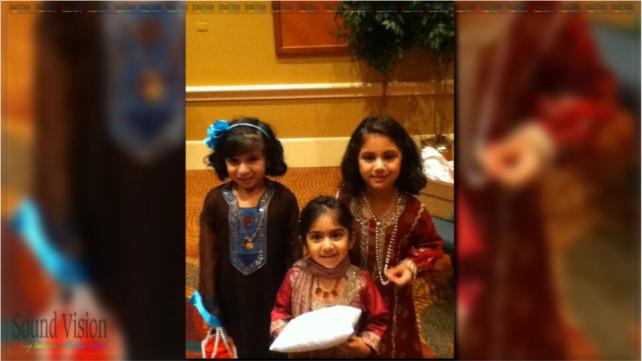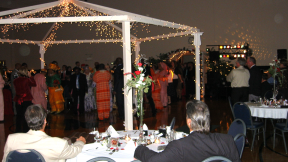
You've no doubt received your share of wedding invitations over the years, including those that invite only couples, not children. There are no doubt good reasons to exclude kids from weddings.
Some of these include cutting wedding costs, since halls and caterers often charge per guest for such a large event; the potential for embarrassment and disaster, with misbehaving kids dangling from drapes, playing tag between tables, and having tantrums during the official Nikah ceremony.
Yet, despite these seemingly logical explanations for those “Mr. and Mrs. Only” invitations, there are even better reasons for Muslim families to include children in wedding celebrations. Here are three big ones.
1. Reinforcement of Islamic values
A priest at a church altar; the permission given to “kiss the bride”, followed by a party featuring wine and mixed-sex dancing – these are all considered the standard wedding script in our culture. Whether it’s on television shows, in movies or books, the assumption is that most people get married this way.
When it comes to Muslims, while we may differ on many levels culturally in how we celebrate marriage, we also have key similarities: the presence of the Imam to conduct the wedding ceremony; the presentation of Prophet Muhammad’s, peace and blessings be upon him, marriage sermon; collective Dua for the couple; the various levels of Islamic etiquette and conduct practiced within families and between men and women.
When we exclude kids from weddings, we deny them the opportunity to witness an Islamic marriage ceremony, something they will most likely never see in the popular culture they consume daily.
2. To reinforce manners
Connected to point number one above is the loss of basic manners. Including kids in weddings is a great way to reinforce good manners often lacking in young people today, regardless of their religious or ethnic background.
For instance, countless parents, employers, grandparents, and other relatives have complained about the way many youth see nothing wrong with sending or receiving text messages in mid-conversation with others. Instead of giving their full attention to the person who is talking to them (which was actually what the Prophet instructed Muslims to do as well), their heads are more often than not bent over a cellphone while their mouths are supposedly conversing with you.
Weddings, like other formal occasions, offer parents a real-life opportunity to reinforce manners in a setting outside of the immediate circle of family and friends. Parents can and should, for example, confiscate the cellphone on when the family is attending a wedding. They should also talk about manners like paying attention to the person talking to them and showing an interest in what is being said, for example.
It might actually be a good idea to enroll young people in an etiquette class in the weeks prior to the wedding to practice. This will not only reap social rewards, but possibly, monetary ones as well, if they are able to impress a potential employer in the long-term with their respect for others.
3. Weddings are about family
No doubt, it is often embarrassing dealing with kids and their antics during a formal occasion like a wedding, whether it’s an unexpected meltdown in the middle of dinner or a potty accident. But that is what family life is about, a paradoxical combination of elegance and embarrassment, smiling and sadness, laughter and rage.
Moreover, these incidents can be handled deftly without resulting in the full-scale exclusion of kids. The parent(s) of a child having a meltdown can immediately leave the room to calm their offspring down; a potty accident can be handled with class by parents packing extra fancy clothes for those “just in case” moments and offering to pay for any damages to hall equipment. There are ways around these problems, provided parents are willing to do their part (and many of them already do), and hosts are able to be a little bit tolerant and forgiving.
We do a disservice to our children and the next generation of Muslims when we exclude them from weddings, a stage we pray they will eventually pass through in the future. Although their presence can be annoying and embarrassing at times, this is a small price to pay for the reinforcement of Islamic values and manners, and for them to witness how this critical life juncture is conducted among Muslims.
If you’re planning a wedding this year, I’d suggest choosing less expensive halls, dresses, and other paraphernalia, and expanding the guest list to include children. You may not have the fanciest or most elegant wedding of your social circle. But the blessings you’ll get when those little hands are raised in Dua for the newlywed couple and your family, as well as the teachable moment you offer young Muslims who may have rarely, if ever, witnessed, an Islamic marriage ceremony, will be the true payoff in the end.










Comments
What a beautiful article
I have seen the decline in children being invited to Christian weddings. I hope the same isn't true for Muslim weddings. Children should be cherished. Let them join in ❤️
Location
it sucks
it sucks
Add new comment